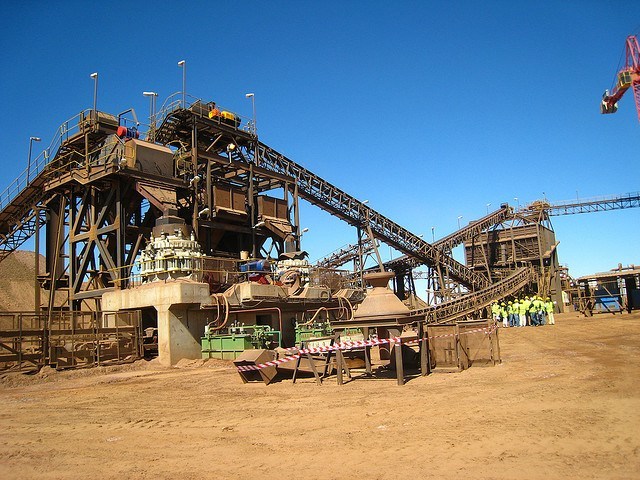Suspicions of corruption in Kinross-Tasiast, Mauritania: what are our leaders waiting for?
Blog

During the month of July, Kinross Mining Company was ordered by the US Securities and Exchange Commission (SEC) to explain allegations it had received undue payments made to government officials and some internal control deficiencies in their operations in Mauritania and Ghana. This follows two earlier requests by both the SEC and the Justice Department of the United States.
These allegations have been raised since August 2013 by several external sources as well as internal whistle-blowers who alerted the company about their suspicions of fraudulent activities.
To reassure its shareholders, managers of Kinross-Tasiast hired Canadian and American consultants to conduct an internal investigation.
According to Raphael Sourt, the company’s communication manager in West Africa: “Allegations of this kind are frequent”, before adding “when we assign a contract, it is not unusual for a company that has not received the contract to complain through local media. This allegation is completely unfounded and proven by the fact that this information is published by minor sites … “.
Mike Sylvestre, Vice President of Kinross’s operations in West Africa, has a similar message, stating that the government is not involved in the company’s process of awarding contracts. “Besides”, he added, “the Mauritanian government has never had a case of embezzlement in relation to Kinross at its local operations.”
In 2013 Kinross Tasiast Mauritania abandones its expansion project that would have created over 3,500 new jobs. On top of dropping out of this commitment, more than 600 company employees lost their jobs in the space of two years. To justify these measures, the company has argued that this is down to operating costs. While the decline in the price of an ounce should not be overlooked, this alone can hardly justify the situation given the enormous benefits we know the company has amassaed between 2009 and 2013. During this period the price per ounce has increased from about $1,000 to nearly $1,800.
The involvement of US agencies in the fight against corruption in this case and the latest revelations in the national and international press for making states granted to certain persons close to the regime prove, if need be, the majority of costs brandished by the company are not necessarily intended to direct business.
The abandonment of its expansion program, which led to the dismissal of over 350 employees in 2013, did not prevent the company to record a deficit of 65 million US dollars in 2014 and to announce another round of layoffs of around 250 employees in October 2015.
The operation of a mine as Tasiast which is done in the open, halfway between two export ports and close to its main customers, can never justify the phobia of costs that we administer even if the price per ounce has fallen. Moreover when the company commit to resume Tasiast mine in Red back Mining the price per ounce was around 1,100 dollars. Today the price per ounce still is around 1200 dollars gold. If one refers to the curve of prices of gold the past 50 years, we realize that n is not fire in the home for gold which is the safe haven. This is a management problem, especially dyeing s account the period of great splendor known as the company.
While most articles mention embezzlement at the national level, they forget that the majority of purchases are made by mining companies through subsidiaries sisters who make large purchase transactions freely at prices they set together. It happens that we bill for services that are used elsewhere. Very often overcharged while the product or the machine was either recycled or simply used elsewhere in another country for the cost, they are loaded on the n Mauritania, and deducted from income in Mauritania.
Several organisations transparencies are now in the process of pushing the states to pay greater attention to this phenomenon-called “transfer pricing”, which is one of the juiciest niches for corruption and illicit flows to the detriment of the interests of resource-rich countries.
Publish What You Pay has always worked to attract the attention of the authorities on the issue of costs and illicit flows that take advantage of flaws in our tax system. We still grasp once this opportunity to encourage our government to a lot more vigilance to make the most of our mining resources through transparent and accountable management that takes into account the interests of communities, workers, the private sector but also and especially for future generations. The resources belong to Mauritania and its people. It is the duty of our leaders to assume all the responsibility entrusted to them and to report to the people through an independent inquiry.